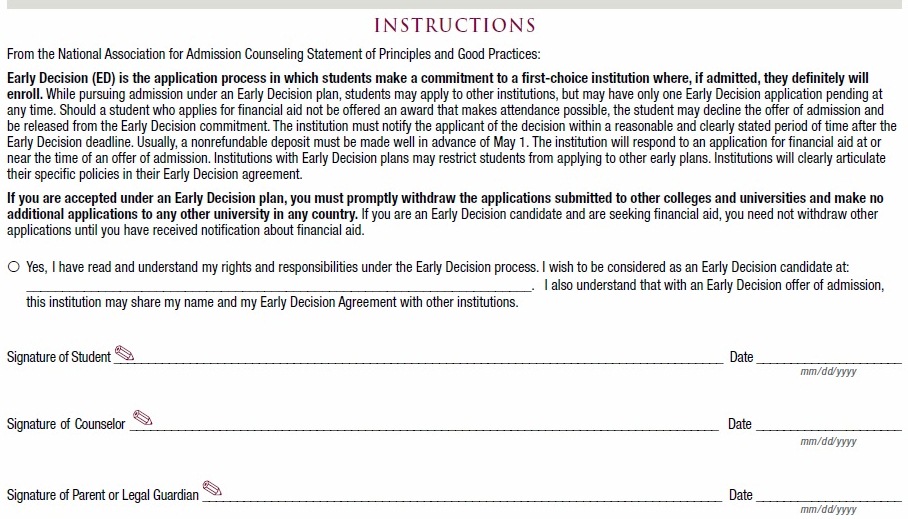CONTACT US
The Facts About Early Action and Early Decision for College Admissions
“Should my kid apply early?” parents are now wondering, shuffling behind their prospective students on a college tour inevitably ending on the steps of the school bookstore where the tour guide turns around for final questions. Go ahead and ask the weathered upperclassman at the risk of your son or daughter’s embarrassment, but don’t let the memorized response determine your stance on such a critical decision in the application process. Read on for an insider’s perspective on Early Action and Early Decision.
Tour guides aside, it is shocking how college counselors and admissions officers alike tell students not to apply early unless they would forfeit a body part to be admitted to their first choice school. Frankly, in this competitive admissions environment, such advice will steer the vast majority of prospective students into disappointment. A student’s interest in a particular college should only be one of many factors considered when deciding whether to apply early. In fact, there are several questions that applicants must address before even considering whether a college will be a good fit.
First, how do the student’s numbers compare to last year’s pool of admitted applicants? If the student is an SAT-acing, top-ranking shoe-in, he or she will likely be admitted to most selective colleges regardless of applicant pool. If a student’s numbers reside well below a desired school’s averages, it’s time to either reconsider that college list or acquire the professional help in test prep and academic counseling that should have been sought out months, if not years, before. On the other hand, applicants who straddle that numerical middle ground at a handful of selective institutions should seriously consider applying early. According to a study conducted by Harvard and Stanford’s economic departments, qualified students who apply early generally gain a 20 to 30 percentage point increase in acceptance probability. Such a boost is equivalent to tacking another hundred points onto your SAT score.
Second, should prospective students apply Early Decision or Early Action? While the majority of selective universities and colleges offer the well-known Early Decision option that requires you to attend if accepted, several highly regarded institutions instead offer a non-binding alternative called Early Action. While both options increase your chances of admissions at similar rates, Early Action provides students with the opportunity to choose among all the schools that they apply to. Consequently, students who are especially unsure of their first choice should strongly consider the Early Action route.
To add to the complexity, more and more schools are following a new trend of instituting an Early Decision II program (also binding). This option essentially allows students who were either rejected by their first choice during the first round of Early Decision or unable to submit all of their Early Decision I application materials on time to increase their chances of admission at another selective college or university. Organized applicants can thus use Early Decision II as a last resort to hold onto that competitive edge that applying early provides. A comprehensive list of all the early admission plans that schools on the Common Application offer can be found here.

Early Decision is a binding agreement that requires you to withdraw all other applications you have submitted if accepted. Early Action does not have the same requirement.
Whether colleges and universities find early admissions applicants to be more attractive because of their ambition or level of interest in the college, or admissions offices simply need to fill a quota of qualified students to ensure a desirable class size, qualified students who apply early have a substantial advantage in the admissions process. Given the extensive amount of planning and strategy necessary in choosing the right college and doing all of the little things to capitalize on the competitive edge that applying early confers, it is advisable to acquire assistance from professional experts who specialize in this field.
Like what you see here? We are happy to permit you to use our material as long as you link back! Please refer to us as the Cardinal Education Blog.
SEE OUR RESULTS
DISCLAIMER
Cardinal Education is an independent educational consulting company. We are not affiliated with or endorsed by any private school, including those mentioned on this website. All school names and trademarks are the property of their respective owners and are used here for descriptive purposes only.

